Wafting through its lavish hotels, private homes and vibrant souks, fragrances both ancient and modern are integral to everyday life in Oman.
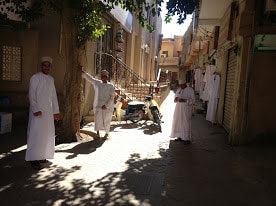
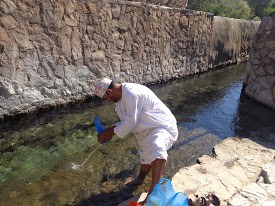
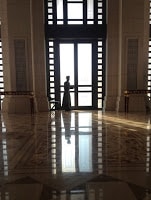
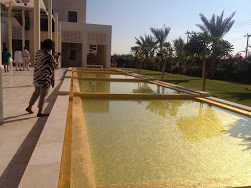
The lobby of the fabled Al Bustan Palace in Muscat has a distinct fragrance. There are hints of frankincense, a whiff of rose and a dash of oudh (agarwood resin). The aromatic effect is intensified by the cardamom-flavored black Arabic coffee that is offered, along with luscious nut-stuffed dates, as a welcome to the hotel. Men in starched white dishdashas (robes) saunter past, leaving a trail of fragrance.
Omanis express themselves through scent and this is evident all through the 80ha Ritz-Carlton property that was constructed under orders from His Majesty Sultan Qaboos bin Said al Said for the Gulf Cooperation Council summit in 1985. Educated in India and England, Sultan Qaboos loves scent almost as much as music; he founded a 120-member local symphony orchestra that travels with him.
The word perfume comes from the Latin phrase per fumus (through smoke). Scented smoke was humankind’s way of communing with the sacred. Later, aromatic smoke was supplanted by fragrant water and then essential oils. These oils were subsequently distilled into iconic fragrances such as Joy by Jean Patou, Shalimar by Guerlain and Chanel No.5.
Incense and smoke, however, were the original scents, a tradition that continues in Oman today. Tassels sewn onto dishdashas would be dipped into the perfume stoops at the door of a residence in order for men to smell fragrant upon entering and leaving the abode, says David Crickmore, CEO of Amouage, Oman’s signature perfume brand.
Founded at the behest of Sultan Qaboos, Amouage now sells in stores around the world, including David Jones in Australia, Harrods in the UK and high-end boutiques across the US and Europe. The perfumes are designed in the UK, created in the south of France and packaged in Muscat. A 100ml bottle of Amouage’s latest, Fate Man, with notes of cumin, mandarin, saffron, absinthe and ginger, costs €270 ($405).
In the Amouage factory, women in pastel headscarves bottle and package perfumes with names such as Interlude, Gold and Lyric. Men’s perfumes have tops shaped like Oman’s iconic khanjar (dagger), while women’s perfumes have bottletops resembling a mosque roof. Amouage’s first perfume, Gold, was created by Guy Robert, also responsible for Madame Rochas and Calèche.
If Amouage depicts the top end of Omani perfume, the souks (markets) demonstrate the more egalitarian version. At Muttrah souk, tiny shops sell packets of frankincense, called luban by the locals. Frankincense is secreted by slashing the bark of boswelia trees and allowing the resin to bleed out and harden. As well as using it for fragrance, Omanis chew it for good health. It is sold as pellets, either pure or mixed with other scents at Muttrah and the Sabco Centre souk in Muscat’s Qurum district. Packets containing white pellets – as opposed to the greyish ones – are considered the best quality.
“Fragrance is what Oman is all about,” says businessman and bon vivant Shawqi Sultan, who belongs to one of the old aristocratic families of Oman. “Although other cultures have frankincense, historically Oman produced and exported the best quality. It is what we burn in our homes and how we welcome our guests.”
Sultan founded the Muscat Black Tie, a group of Omanis and expatriates who congregate once a month to enjoy fine food and wine. When he invites guests home to dine, Sultan serves the best European wines and ends the evening with cigars and cognac, and fragrant orange-blossom tea.
The other fragrance element associated with Oman is oudh, the global scent industry’s ingredient of the moment.
Numerous European perfume brands including Tom Ford, Guerlain and Dior, as well as niche brands such as By Kilian and Byredo, have released signature scents based on the resin secreted by evergreen tree Aquilaria malaccensis in reaction to an invading fungus. The finest
oudh comes from Cambodia, and thereafter Oman. Rare and costing tens of thousands of dollars in its pure form, oudh and frankincense are the twin scents that can make a desert sheikh swoon. Separately or together, they are key ingredients in bukhoor, a mixture made with wood- chips dipped in essential oils, oudh, frankincense, dried flowers, herbs, spices and seashells. These are powdered together in various combinations to create different scents. A typical recipe might include musk, sandalwood oil, rose essence, oudh and luban. Omanis intuitively mix and match the raw ingredients, layering scents on their bodies and clothes, based on generations of practice.
The incense burner is an open ceramic pot that contains a few burning coals. When the dry resinous mixture is sprinkled on the glowing embers, it emits the fragrant smoke that suffuses most Omani homes. Locals air their clothes in the smoke to make them aromatic, and use it to mask the smell of fish after cook-
ing. They have different fragrances for different times, using stronger florals for the evening and light, citrusy ones for the day.
At specialist shop Abdul Samad Al Qurashi (asqgrp.com/en), a group of men sniff a variety of scents, animatedly discussing choices. There is white musk, which serves as a binding agent; oudh, which purifies; sandalwood, which is mystical; roses and jasmine. Prices range from modest to astronomical – $US2667 ($2876) for a 5.8g bottle of 150-year-old aoud (oudh) oil.
At first pass, oudh seems overwhelmingly strong. “Wait a few hours for it to flower,” says the salesman. “Wait a few days and then you will see it bloom.”
For airfares and holiday packages to Oman call Qantas Holidays on 1300 735 542 or visit qantas.com/holidaysaustralianway


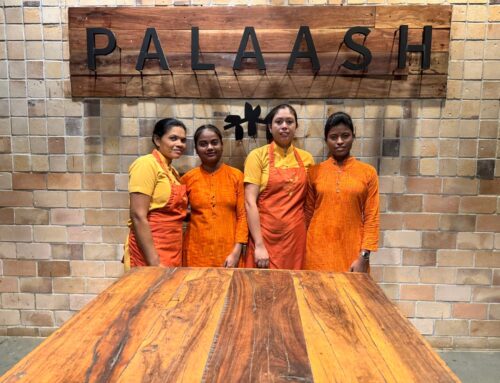

Oman is such a magical place…and Frankincense is such a mystical perfume that comes from Oman. But if my memory serves me right I remember Pradip Krishen mentioned in his book ” Trees of Delhi’ that a few trees of Frankincese were found in Mangarbani Sacred grove in Faridabad… whatever happened to them after all the development is not known. After reading this post I am tempted to go and find them ….
Desi Traveler: good to know.